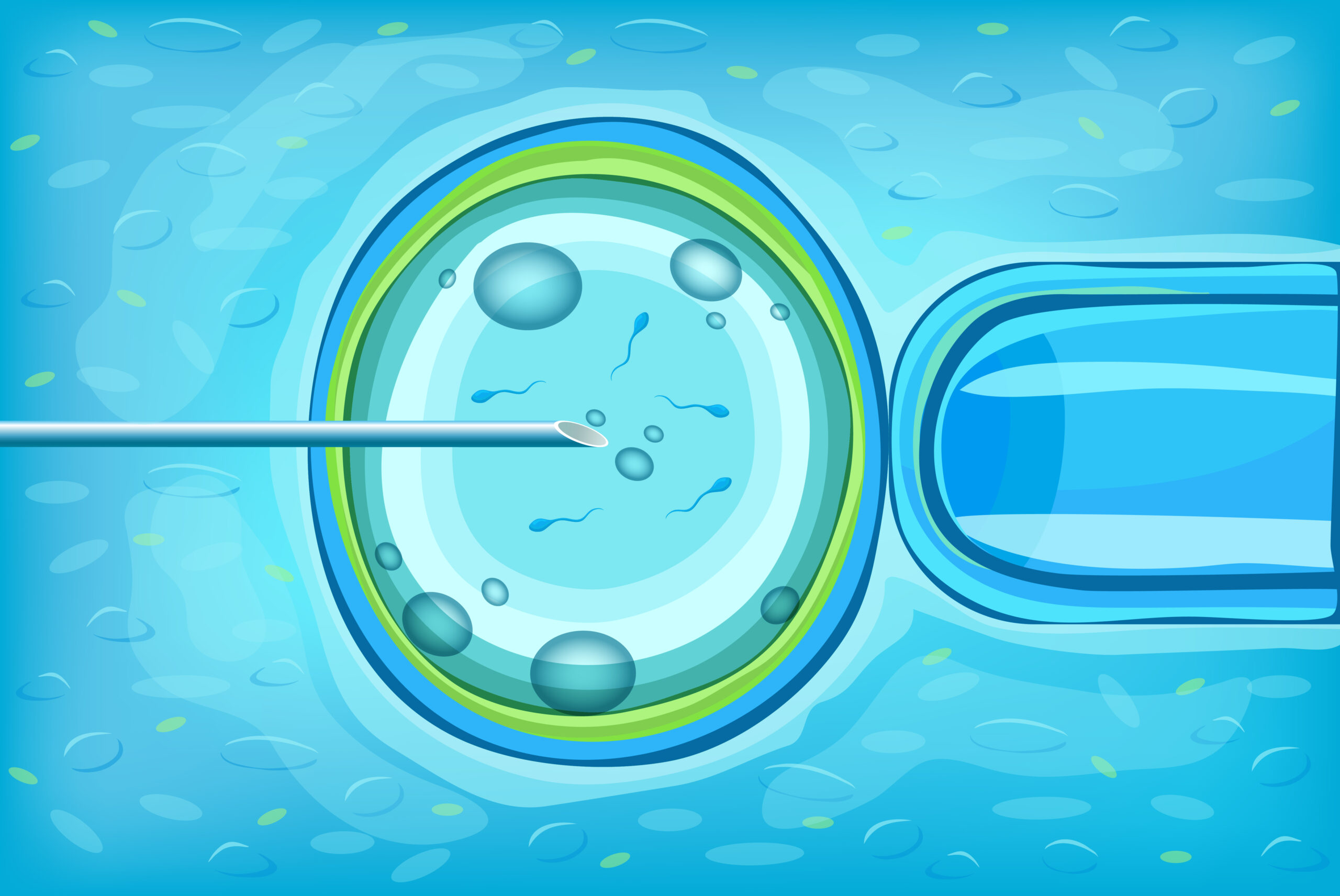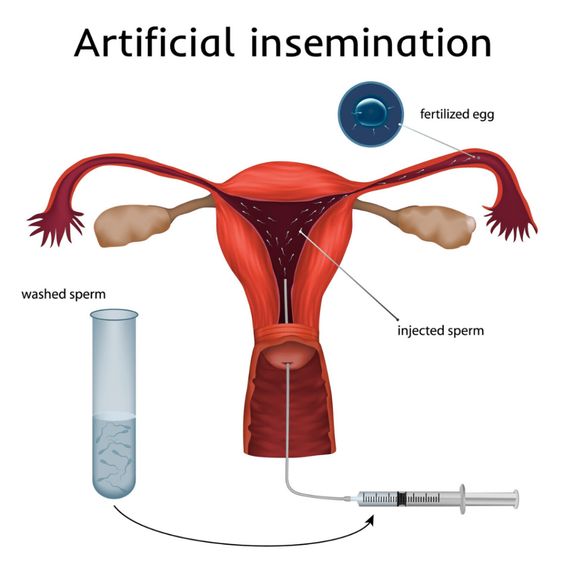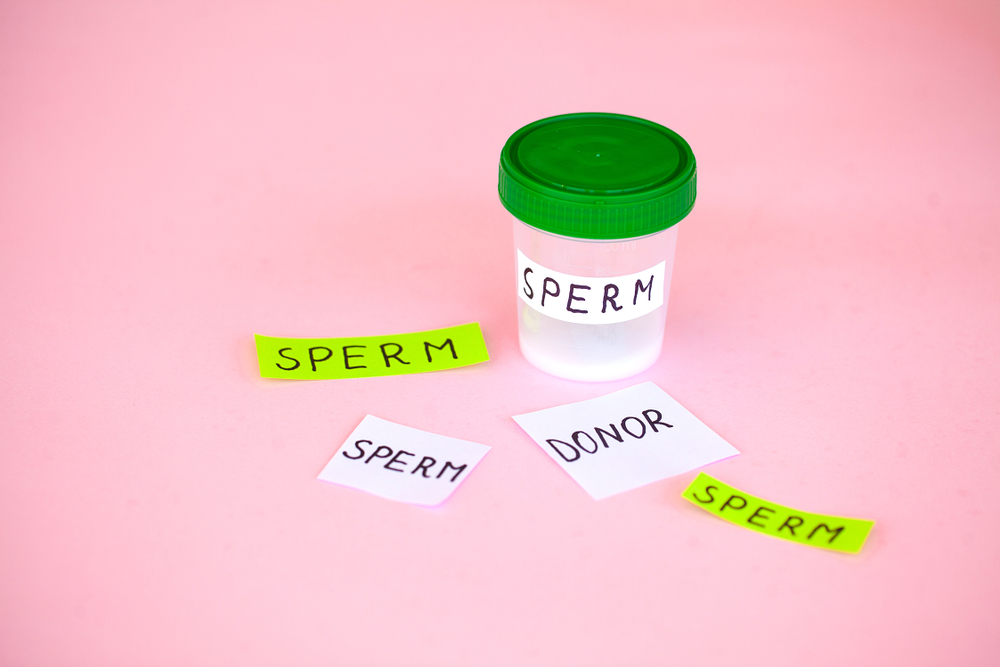






World-Class Technology
We are equipped with all the modern techniques and technologies for infertility treatments. Our top-class IVF lab has recently been upgraded as per the latest international recommendations.

Experienced Doctors & Staff
Dr. Lavleen Sodhi has been running the IVF centre since 2007 & it was the first in the region. With the best team of doctors & staff, we have successfully achieved results at par with the best institutes worldwide.

Patient-Friendly Environment
Dr. Sodhi's Healthcare Multispeciality Hospital and IVF Centre provides the perfect ambience and comfortable environment to all patients. Also, there is complete transparency in the treatment.
Empanelment
Our centre is empaneled with some of the best companies in the country.
- Icici Lombard
- Future Genera
- Med Save
- PARAMOUNT HEALTH CARE
- MEDI ASSIST INDIA
- UNIVERSAL SOMPO
- RELIANCE GENERAL INSURANCE
- BAJAJ ALLIANZ
- STAR HEALTH CARE
- MED HEALTH CLINIC
- MAX BUPA
- ADITYA BIRLA
- AKSHA TPA
- GHPL
- VIDAL HEALTH CARE
- TATA AIA
- FHPL
- KOTAK MAHINDRA
- VIDAL HEALTH CARE
- HDFC ERGO SAFEWAY
- BHARTI AXA
- VIPUL MED CORP
- PARK MEDICLAIM
- TTK
- GHPLTPA
- DHS
- MD INDIA
Why Choose Us
When it comes to your fertility care, you want the best. Dr. Sodhi's Healthcare Multispeciality Hospital and IVF Centre offers the best investigative procedures for infertility in men and women. We are equipped with world-class technology and state-of-the-art infrastructure which caters to infertility treatments like IUI, IVF, ICSI, Sperm donor, Egg Donor, Embryo Freezing, Blastocyst Culture and Transfer, Laparoscopy, Hysteroscopy, and more. In addition to your primary fertility physician, we have put together an integrated support team of experienced nurses, psychologists, and staff who work together to address your physical, emotional, and financial concerns. Choose Dr. Sodhi's Healthcare Multispeciality Hospital and IVF Centre to help build your family!

Dr. Sodhi’s Health Care Multispecialty Hospital & IVF Centre
Dr. Sodhi’s Health Care Multispecialty Hospital & IVF Centre has been running since 2007, employing the latest ‘State of the Art’ technologies for the treatment of infertile couples. The ultra-modern hospital is located in Mohali, a highly progressive township, adjoining Chandigarh.
Dr. LAVLEEN KAUR SODHI
DIRECTOR & Sr. CONSULTANT.
Obstetrician & Gynaecologist, Infertility specialist

Dr. Lavleen Kaur Sodhi is the Director, Sr. Consultant Obstetrician & Gynaecologist and Infertility specialist at Dr Sodhi’s Health Care Multispeciality Hospital & IVF Centre. She is also a visiting consultant at Fortis Hospital, Mohali & Cloud Nine Hospital, Chandigarh. Dr Lavleen Kaur has an illustrious academic record to back her present competencies. She completed her MD in 1995 from the prestigious P.G.I Chandigarh & her D.N.B.E from New Delhi, both in Obstetrics & Gynecology. During her M.B.B.S she also bagged the ‘Silver Medal’ in General Surgery in the final professional examination.
Happy Couples
Our Videos
Blog
 8 Best Baby Brain Activities – 3 to12 Months September 19, 2024
8 Best Baby Brain Activities – 3 to12 Months September 19, 2024Did you know that at birth, your baby’s brain already contains billions of neurons? Isn’t it incredible? However, the real magic happens when your little one starts to explore and interact with the world around them. The first year of a baby’s life is a period of surprising brain development. As they discover the world, neural pathways start forming and getting stronger in their little brain. This process is known as synaptogenesis.
During this time, your baby’s brain is super adaptable and can change and reorganize itself based on its experiences and what it learns. Your role as a parent is vital in supporting this process and helping your little one reach their full potential.
Nurturing Your Sweetheart With Fun Activities
So, are you excited to experience and enjoy the happiest and most enriching moments with your child? Here are a few engaging and fun physical activities to ensure healthy brain development in your babies (from 3-12 months).
Reading Together
Reading books together with your little one is a wonderful way to help them grow and learn! It’s not just about the words but the special bond you create and the magic of your voice truly capturing their attention. Even though they might not understand everything right now, they will absorb and learn from the way you talk and the sounds they hear. Picture books are the best. With large, high-contrast images and simple patterns, they evoke your baby’s visual senses.
Talking and Singing
These are among the best baby activities you can indulge in. The little ones are excellent listeners and can pick up on the nuances of language from an early age. Engaging in conversations and singing to your baby encourages language development and emotional connection. You can do this in a variety of ways:
- Speak to your baby using sweet, simple words and funny faces. Your bundle of joy would love this fun way of talking, and they’ll respond happily to it!
- Talk to your baby throughout the day about what you’re doing or how your day was. They’ll observe and pick up from your body language, facial expressions, and voice.
- Sing lullabies, nursery rhymes, and simple songs to your baby. You can do it while feeding them or putting them to sleep. This can drastically help in their overall memory development.
The Play of Reach and Grab
This activity is like a mini workout for your baby’s developing muscles and cognitive abilities. As they explore and grasp objects, their hand-eye coordination and fine motor skills improve. Encourage your baby to reach and grab for toys as they play. This would allow them to better control their movements and explore their surroundings more effectively. Fill their play area with safe and colorful toys that will stimulate their curiosity and help them.
Peek-a-Boo
It is a delightful game that helps babies understand object permanence and enhances social interactions. By hiding and revealing faces or objects, your baby can learn that things still exist even when out of sight. You can make peek-a-boo even more fun by using different toys or hiding in new places. Also, let your little angel take the lead sometimes and initiate the game. This would promote their cognitive skills, memory, and attention while strengthening their emotional bond with you.
Dancing Together
Bonding through dance with your baby is a beautiful way to connect and have fun! As you hold them gently and sway to the music, they feel the rhythm and movement, which is utterly enjoyable. This dancing experience nurtures emotional connection and trust, making them feel safe and loved. The gentle movements also stimulate their sense of balance and body awareness. So, put on some music and dance with your baby, creating precious memories. Try a variety of music styles, from hip-hop to waltz, and observe their natural response to the sounds and beats.
Musical Instruments
Introducing your baby to musical instruments can be a delightful and enriching experience. Offer safe instruments such as shakers or drums, allowing them to explore and create their own music. The act of shaking, tapping, or banging these instruments brings joy and enhances their sensory development and fine motor skills. Encouraging their creativity and self-expression through music fosters a sense of accomplishment and boosts their confidence. So, let their musical journey begin as your baby discovers the joy of making beautiful sounds with their own little hands!
Exploring Nature
Take your baby outdoors to explore nature and the world around them. Being in nature provides sensory experiences that aid in brain development. Take leisurely walks with your baby in a park or garden. Let them touch leaves, feel the grass under their feet, and observe birds and insects. Show them different varieties of flowers and plants, repeating their names often. You can also lie down with your baby and look up at the clouds. Talk about the shapes and colors you see, encouraging their imagination.
Building Bonds Independently
Spending time with siblings or other babies can be a valuable and enjoyable experience for your little one. It offers opportunities for social interaction and learning from their peers. As they observe and play with other children, they pick up essential social skills like sharing, taking turns, and cooperation. These interactions also foster language development, as they try to communicate and understand each other. Moreover, bonding with siblings creates a unique and special connection that contributes to their emotional development. This can give you also the much-needed ‘me’ time for yourself, especially after the postpartum. So, allow your baby to have these precious moments with siblings or playmates.
Final Thoughts
The first year of your baby’s life is a crucial time for brain development. Such acts of playing and interacting help shape their learning abilities. Each baby is unique, so take the time to observe their interests and preferences to adjust these infant activities that suit them best. As you engage in these activities, you create a supportive and loving environment for their overall mental, emotional, and physical growth. These early interactions and experiences will stay with them as they grow, laying the foundation for a lifetime of learning and exploration. So, treasure these special moments with your baby and embrace this precious time of their early development. And, don’t shy away from taking expert counseling and help, if needed.
 Is Infertility Genetic – Complete Guide May 17, 2024
Is Infertility Genetic – Complete Guide May 17, 2024During consultations at fertility clinics, most people often inquire about their reproductive health, “Can infertility be genetic?”
Discovering infertility can be an emotionally challenging experience for anyone. But, the dedicated team at Dr Sodhi’s Health Care and IVF Centre, Mohali, Punjab, India, is here to support you throughout your fertility journey. In this guide, we’ll delve into the fundamental genetic factors contributing to infertility.
Keep reading!
Genetic Factors Behind Male And Female Infertility
Traditionally, fertility and genetics were considered as distinct areas, primarily addressed when couples had a family history of inherited genetic conditions. But now, with the evolution of science and technology, a lot of research is happening on the genetic factors in fertility. In the majority of cases, this can be the reason behind failed IVF cycles.
Book an Appointment with Dr. Lavleen Sodhi for all your Fertility concerns!
Couples experiencing infertility can often be associated with genetic factors. From inherited chromosomal abnormalities to gene mutations, both males and females have different outcomes from both these factors. Here is how genetic factor affcets fertility:
- Abnormalities in the genes of a male, female or both can cause infertility such as implantation failure or miscarriage. It can also cause child birth defects.
- There are three categories of genetic abnormalities that can impact the development of an embryo: Chromosomal abnormalities, Single gene disorders, such as cystic fibrosis, and Genomic imprinting disorders.
- Certain genetic disorders can lead to sperm abnormalities in males, while genetic conditions in females can give rise to ovulation difficulties, ultimately leading to infertility in affected individuals.
Genetic counselling is available at Dr Sodhi’s Health Care Multispeciality Hospital and IVF Center to provide support so you can make an informed decision.
Also, fertility specialists in Mohali try to avoid the effects of gene disorders through preimplantation genetic testing (PGT) during IVF procedures. What is PGT?
Preimplantation Genetic Testing (PGT) is a medical procedure used during in vitro fertilization (IVF) to assess the genetic makeup of embryos before they are implanted in the uterus. It involves the following types of testing:
Preimplantation Genetic Diagnosis (PGD): It is a genetic testing procedure performed during in vitro fertilization (IVF) to assess the genetic characteristics of embryos before they are implanted in the uterus. PGD is primarily used to screen for specific genetic abnormalities or conditions, as well as to select embryos with desired genetic traits.
Preimplantation Genetic Screening (PGS): This is a laboratory technique used during in vitro fertilization (IVF) to examine embryos for chromosomal abnormalities. PGS is primarily focused on assessing the overall chromosomal health of embryos and is often utilized to improve the chances of a successful pregnancy in cases of advanced maternal age, recurrent miscarriages, or multiple failed IVF attempts.
PGT-A (Preimplantation Genetic Testing for Aneuploidy): This type of testing checks for numerical chromosomal abnormalities, such as aneuploidy, which is an abnormal number of chromosomes in an embryo. PGT-A helps identify embryos with the correct number of chromosomes, increasing the chances of a successful pregnancy and reducing the risk of miscarriage.
PGT-M (Preimplantation Genetic Testing for Monogenic Disorders): PGT-M is used to detect specific genetic mutations or single-gene disorders that a couple may carry, such as cystic fibrosis, sickle cell anemia, or Huntington’s disease. It allows for the selection of embryos that do not carry the specific genetic mutation, reducing the risk of passing on the disorder to the offspring.
PGT-SR (Preimplantation Genetic Testing for Structural Rearrangements): PGT-SR is utilized when one or both partners have structural chromosomal abnormalities, like translocations or inversions. This testing helps identify embryos with balanced chromosomal arrangements, increasing the chances of a successful pregnancy.
PGT is a valuable tool for couples at risk of passing on genetic disorders to their children or for those who have experienced recurrent pregnancy loss or infertility. It enables the selection of embryos with a higher likelihood of being genetically healthy, improving the chances of a successful pregnancy and the birth of a healthy child.
Fertility specialists in Mohali try to avoid the effects of gene disorders through preimplantation genetic testing (PGT) during IVF procedures.
Is There Genetic Blood Test?
A genetic blood test before fertility treatment is commonly performed to assess the genetic health of prospective parents. This test is typically referred to as “genetic carrier screening” or “preconception genetic testing.”
A blood sample is taken from each partner, and their DNA is analyzed to identify any known genetic mutations associated with inherited disorders. The test typically looks for mutations linked to conditions like cystic fibrosis, sickle cell anemia, Tay-Sachs disease, and many others, depending on the test panel used.
What are other possible reasons for infertility?
Several factors can contribute to infertility, and in women, one prevalent factor is the presence of ovulation disorders. Polycystic ovarian syndrome (PCOS) is a common condition that can disrupt the ovulation process. Genetic predisposition plays a significant role in the development of PCOS, and it tends to be hereditary. Therefore, if your mother had PCOS, you may have a higher risk of experiencing it as well, potentially affecting your fertility.
Infertility can also arise from other issues affecting the reproductive organs, such as blocked fallopian tubes, which may be caused by conditions like endometriosis (a condition where tissue similar to the uterine lining grows outside the uterus) or pelvic infections. Uterine fibroids, which are growths in the uterine muscle, can also contribute to infertility. It’s worth noting that both endometriosis and uterine fibroids can have a hereditary component, running in families.
In women, age is also an important factor in infertility. The probability of a woman getting pregnant during a specific menstrual cycle starts to decrease as she enters her early 30s. As she continues to age, not only does the quantity of her eggs diminish, but the proportion of abnormal eggs also increases, consequently elevating the risk of miscarriages and the occurrence of Down syndrome. Specific genetic conditions, such as fragile X syndrome, are associated with the premature depletion of eggs and are frequently linked to a family history. For men, infertility is most commonly attributed to the quantity and quality of sperm.
 Supporting Your Partner Through IVF: A Guide for Couples April 1, 2024
Supporting Your Partner Through IVF: A Guide for Couples April 1, 2024Are you or your partner going through IVF? There’s no doubt about this crucial journey being a rollercoaster with ups and downs both for the mother and father. So, giving each other emotional and physical support during this time is incredibly important. After all, your love and understanding for one another can make a world of difference during this hopeful treatment.
Knowing the Complete IVF Journey
There are different ways you can be the pillar of love and guidance for each other. Check out the following stages and know how you can be in this together, physically and emotionally.
Preparing for IVF – The first stage of IVF begins with an appointment with a fertility specialist. During this crucial meeting, you will discuss your medical history, undergo a physical examination, and possibly some tests to assess your fertility potential. Your specialist will also explain the IVF process in detail, addressing any concerns or questions you may have. Knowing that you are supporting each other brings comfort and makes you both stronger. So, attend these counseling sessions together, and share your hopes and fears.
Stimulation Day– Once the necessary preparations are complete, the stimulation phase begins. This stage typically starts on the second or third day of the mother’s menstrual cycle. You will be prescribed fertility medications to stimulate the ovaries and promote the growth of multiple follicles. As the treatment begins, both you and your partner may get injections and experience hormonal changes. But you don’t need to panic and just cheer each other on.
Egg Retrieval & Fertilization – These stages are significant in the IVF process, taking place around days 14 to 15 of the stimulation phase. Your doctor will determine the right time for retrieval when the follicles are mature enough. After this, the embryologist will examine the collected eggs and prepare them for fertilization. Try to be present for the procedure (if allowed), offer emotional reassurance, help with post-procedure needs, and assist with daily tasks.
Embryo Transfer Day – The embryo transfer itself is a relatively quick and painless procedure. Your doctor will carefully place the selected embryos into your (or your partner’s) uterus. The mother might be advised to rest for a short period after the transfer. During this time, both of you will experience heightened emotions. Engage in relaxation techniques or meditation before and after the procedure to reduce stress and anxiety. Reassure each other, knowing that feelings of hope and anxiety are normal during this waiting period.
The Two-Week Wait after Embryo Transfer- This stage is emotionally challenging with a critical wait of 14 days. Throughout this period, you will have to wait anxiously to find out if the embryo implanted in your uterus leads to a positive pregnancy test. It is natural to experience a mix of emotions, from hope and excitement to fear and anxiety. Support each other by engaging in stress-reducing activities and open communication. Stay positive, understand that the outcome is not entirely in your control, and plan distractions to keep you occupied.
Standing by Each Other Despite the Results
Dealing with IVF Success
If your IVF treatment leads to pregnancy success, the happiness and excitement both of you’ll experience would be indescribable. You will feel an overwhelming sense of relief and happiness. You’ll share in the excitement of becoming parents and cherish every moment of the pregnancy. You must attend doctor’s appointments together to witness the growth of your baby through ultrasounds and eagerly discuss the preparations for the arrival of your bundle of joy.
The support between both of you during a successful IVF pregnancy is crucial as you cope with the physiological and psychological changes that come with carrying a child. You can provide comfort and encouragement, reassuring each other through any pregnancy-related challenges that may arise. Moreover, you can often take on new roles to adjust to the needs of the expectant parent, showing love and dedication throughout the entire process.
But in the early stages of pregnancy, you may still feel anxious and scared despite the care and love you give each other. This is normal because you’ve put a lot of hope and effort into the IVF treatment, and you might worry about challenges related to parenting.
You can attend parenting classes during the pregnancy to confidently prepare for parenthood. These classes can provide valuable information and tips on how to care for your newborn, handle different situations, and build your confidence as parents. They can also be a great way to meet other expectant parents and share experiences and support each other.
Dealing with IVF Failure
However, if your first try with IVF treatment doesn’t lead to pregnancy, you both should stay headstrong and positive. It’s essential to cope with disappointment and grief together. You must understand that experiencing sadness and frustration is normal and valid, and it’s okay to feel a wide range of emotions. Lean on each other for support during these tough times and work together to handle your emotions.
The process of psychologically healing after IVF failure is different for every couple. Some of you may need space and time alone to process your emotions, while others find comfort in being close and open with each other.
Both of you need to communicate honestly about your feelings and provide a safe space for each other to express your emotions.
You can find consolation in seeking support from friends, family, or professional counseling services to help you cope with the upsetting emotions. No matter the outcome, the love and understanding you show each other during this time will leave a lasting impact on your relationship.
Final Thoughts
IVF treatment strengthens your bond as a couple. Whether the outcome is successful or not, you face challenges together, grow closer, and find hope for the future. With support, love, and understanding, both of you become stronger. When the outcome is not as you expected, you may choose to explore further IVF attempts or consider other family-building options, such as adoption or surrogacy. Whatever path you decide to take, the key is to support and respect each other’s feelings and choices.
 Best IVF Centre in Chandigarh March 13, 2024
Best IVF Centre in Chandigarh March 13, 2024
In vitro fertilization (IVF) is a reproductive technology that involves the fertilization of an egg with sperm outside the body, typically in a laboratory, and then implanting the fertilized embryo into a female’s uterus. It is useful for couples who struggle with infertility due to various reasons such as blocked fallopian tubes, low sperm count, or ovulation disorders, PCOD, etc. The best IVF center in Chandigarh and Mohali offers hope to those who have been unable to conceive through natural means and provide them with the opportunity to become parents.Choosing the best IVF center for fertility treatment is crucial for several reasons. Firstly, the success rates of IVF can vary greatly among different clinics, depending on factors such as the expertise of the medical staff, the quality of laboratory facilities, and the availability of advanced techniques. Secondly, a reputable IVF center will offer comprehensive support services, including counseling and personalized treatment plans, which are essential for the emotional well-being of patients undergoing fertility treatment. Moreover, selecting the best IVF center in Mohali and other areas ensures that patients receive safe and ethical care, adhering to established medical guidelines and ethical standards.
Best IVF Centre in Chandigarh/Mohali, Punjab
Check the list of the best IVF hospitals in Mohali, Chandigarh, and nearby areas:
Dr Sodhi’s Health Care Multispeciality Hospital and IVF Centre

Dr. Sodhi’s Health Care Multispeciality Hospital and IVF Centre offers the best hope for individuals and couples struggling with infertility. Located in the heart of the city, this renowned institution is known for its excellence in IUI, IVF, infertility treatments, and comprehensive maternity services. Led by the esteemed Dr. Lavleen Kaur Sodhi (M.B.B.S, M.D(PGI Chd), D.N.B.E), a pioneer in the field of infertility treatment, the hospital boasts state-of-the-art facilities and a team of highly skilled professionals dedicated to delivering personalized care and achieving optimal outcomes for every couple.
At Dr. Sodhi’s Health Care Multispeciality Hospital and IVF Centre, the focus is not just on achieving pregnancy but also on ensuring the overall well-being of patients. The center offers a wide range of services, including infertility evaluations and assisted reproductive technologies such as in vitro fertilization (IVF), intracytoplasmic sperm injection (ICSI), and egg donation, among others. Each treatment plan is tailored to meet the unique needs of the individual or couple, taking into account medical history, diagnostic test results, and personal preferences. With its comprehensive services, state-of-the-art facilities, and patient-centered approach, the center continues to redefine standards of care in reproductive medicine and make dreams of parenthood a reality for countless families.
Jannee Fertility Centre

Jannee Fertility Centre, located in Chandigarh, stands as a prominent institution dedicated to addressing the complexities of infertility in couples. Led by a team of renowned fertility specialists and equipped with cutting-edge technology, the center offers a comprehensive range of maternity services aimed at helping individuals and couples achieve their dreams of parenthood. From initial consultations and diagnostic evaluations to advanced reproductive treatments such as in vitro fertilization (IVF), Jannee Fertility Centre provides personalized care tailored to each patient’s unique needs.
The center understands the profound emotional toll that infertility can take and strives to create a supportive environment where patients feel empowered and encouraged throughout their journey. With a commitment to excellence, compassion, and innovation, Jannee Fertility Centre continues to be a beacon of hope for individuals and couples seeking to overcome infertility and embark on the path to parenthood.
Bedi IVF Center

Bedi IVF Center, located in Chandigarh, is a place where doctors help couples who want to have babies but are finding it hard. The center is well-known for its friendly and caring environment. The doctors and nurses here understand how tough it can be for couples who are struggling to have a baby.
Here, you can witness the force of unwavering excellence, relentless courage, and sheer determination. Your aspirations are not just dreams; they are achievable realities with Bedi Fertility Centre. Their experienced physicians provide a comprehensive range of fertility treatments, from basic to advanced, including intrauterine insemination (IUI), in vitro fertilization (IVF), donor egg programs, and egg freezing. With the aid of cutting-edge laboratory techniques, our embryology specialists strive to maximize your chances of conception, guiding you toward the fulfillment of your parenthood journey.
Reviva Fertility & IVF Clinic

Reviva Fertility & IVF Clinic in Chandigarh stands as a beacon of hope for couples struggling with infertility issues. Renowned for its state-of-the-art facilities and compassionate care, Reviva offers a comprehensive range of assisted reproductive technologies tailored to each individual’s needs. Led by a team of highly experienced fertility specialists, the clinic prides itself on its patient-centric approach, ensuring that every step of the fertility journey is met with understanding, empathy, and support.With a commitment to excellence in reproductive medicine, Reviva Fertility & IVF Clinic employs the latest advancements in fertility treatment, including in vitro fertilization (IVF), intracytoplasmic sperm injection (ICSI), and egg freezing. The clinic’s dedication to innovation and personalized care has resulted in numerous success stories, bringing joy to countless families across Chandigarh and beyond. Beyond medical expertise, Reviva fosters a nurturing environment where patients feel empowered and informed, fostering a sense of hope and optimism on their path to parenthood.
FAQs
How much does IVF cost in Chandigarh?
The cost of in vitro fertilization (IVF) can vary depending on several factors, including the clinic you choose, the specific treatment plan recommended by the doctor, any additional procedures required, and any medications needed. In Chandigarh, India, the cost of a single cycle of IVF typically ranges from around ₹80,000 to ₹150,000 or more.
Which IVF clinic has the highest success rate?
Determining the IVF clinic with the highest success rate can vary based on factors like patient demographics and treatment protocols. It’s recommended to research government reports, professional organizations, and clinic websites for up-to-date success rate data in Chandigarh, India, and consult with a fertility specialist for personalized recommendations.
What is the minimum cost of IVF?
The minimum cost of in vitro fertilization (IVF) in India can vary depending on factors such as the location, clinic reputation, expertise of the doctors, and the specific treatment required. Generally, the minimum cost for a single cycle of IVF in India ranges from approximately ₹80,000 to ₹150,000. However, additional expenses such as fertility medications, diagnostic tests, and any necessary additional procedures can increase the overall cost. It’s advisable to inquire directly with clinics to get accurate pricing information.
What part of IVF is most expensive?
The most expensive aspect of in vitro fertilization (IVF) is typically the cost of medications used for ovarian stimulation and egg production. These drugs can be quite pricey, with varying dosages needed per patient. Additionally, laboratory procedures such as egg fertilization and embryo culture contribute significantly to the expenses. Specialized equipment, skilled personnel, and techniques for embryo transfer and freezing also add to the overall cost. The IVF procedure itself, including egg retrieval, fertilization, embryo transfer, and associated surgical fees, further contribute to the expense. Overall, the combination of medication costs and laboratory procedures makes IVF a costly fertility treatment.
 Do’s and Dont’s After Embryo Transfer February 15, 2024
Do’s and Dont’s After Embryo Transfer February 15, 2024Have you gone through embryo transfer recently? Are you and your partner confused about do’s and don’ts after embryo transfer? Pregnancy can be challenging whether you are an experienced or a first-time parent.
In the IVF process, embryo transfer plays a major role in the success of your pregnancy.
The success of embryo implantation depends on the embryo’s quality and a strong uterus. These are biological factors and might not be in your control. However, some lifestyle changes can help you stay fit and ready for this journey.
Things to do After Transfer
Let’s discuss what you can do to increase the success of the IVF procedure.
Never Skip Your Medication
It is important to consume your medications after embryo transfer regularly. For example, progesterone is crucial post-transfer for many women to support pregnancy. Follow your doctor’s advice on medication intake at the exact time. Trust your doctor’s expertise; they know your situation and embryo well.
Enjoy Pampering Sessions
After your embryo transfer, take time for self-care and relaxation. Enjoy activities like watching movies, reading, or spending time with pets. Embrace this transition with ease by enjoying some personal time. Take a short walk in nature, as fresh air is good for you and your baby. Doing these things is very important for the early stages of your baby’s development.
Power of a Balanced Diet
Eating food rich in important minerals, fibre, and nutrients can provide strength. Your diet directly impacts you and your baby’s well-being. Experts recommend avoiding eating packaged food. This is because they have a lot of preservatives that are harmful to you. Instead, eat leafy greens and fresh fruits. Moreover, hydrating your body in this state can be highly beneficial.
Take Folic Acid Supplements
Start taking folic acid if you haven’t already. Doctors majorly recommend this for its miraculous healing powers. It’s crucial for preventing congenital disabilities like neural tube defects and heart problems in babies. It is advisable to take 400 mcg daily. Talk to your doctor about adding folic acid to your routine for a healthy pregnancy.
Think Positively and Avoid Stress
Positive thoughts can influence your hormones and keep your mood swings in check. Thinking happy thoughts can help prevent overthinking. This is extremely important to avoid stress as it may harm the embryo. Try yoga or relaxation methods to stay relaxed. Stress can affect pregnancy, so keeping a peaceful mind is important.
Endocrine-Disrupting Chemicals Are Your Enemy
Some chemicals, called EDCs, are harmful to your body during pregnancy. They can pass to your baby through the placenta, messing up their organ growth. Too much exposure can cause big problems for your baby’s development. Always turn the products you buy and pay attention to the ingredients list. Buy products that are natural and free of BPA.
Things to Avoid After Transfer
In this sensitive phase, it is important to avoid certain things. These are as follows.
Stay Away From Excess Heat
Skip hot baths, tubs, or saunas post-IVF transfer. Heat raises body temperature, harming implantation and early pregnancy. Research shows embryos are sensitive to heat. This increases the risks of implantation failure or miscarriage. To be safe, avoid prolonged exposure to hot water, as doctors advise.
Say no to Heavy Weights
It is advisable that after IVF, physical strain is lessened by reducing household chores and heavy lifting. Avoid intense exercises or lifting heavy objects over 10 pounds. Stick to light activities and avoid risky sports to lower the chances of treatment failure.
No Intercourse
It’s recommended to take it easy after your embryo transfer. Having sex right after can cause contractions in your uterus, which might harm the embryo. It’s safest to wait a few days before resuming sexual activity to give the embryo a better chance to implant. This helps keep your body strong.
Avoid Alcohol and Smoking
For IVF success, it is important to maintain a healthy lifestyle. Doctors advise quitting smoking and alcohol three months before and after IVF. This is because the toxins can harm the baby by weakening the uterus. Watch your caffeine intake, as it can affect implantation. Following these steps can improve your chances of successfully conceiving your baby.
Say no to Aspirin
If you feel uncomfortable after the transfer, stick to Tylenol (acetaminophen) or a low setting on a heating pad. Avoid Ibuprofen (Motrin, Advil) and aspirin unless your doctor prescribes a small dose (80mg or 81mg). Follow these instructions for relief, and if you feel any problem or pain, immediately visit your doctor.
Is It Time to Visit Your Doctor?
After IVF, your doctor will watch over you closely. In some cases, you might stay in the hospital for extra care. However, you may experience severe cramps or heavy bleeding after embryo transfer. This is the time when you should see your doctor right away. It’s normal to have mild cramps and spotting, but unusual symptoms need attention.
In conclusion, taking care of yourself during and after IVF is important, especially after embryo transfer. Don’t wait for pregnancy confirmation to start taking care of yourself. Find a reputable fertility doctor and centre for the best care. Stay patient during the wait, avoiding home pregnancy tests. Focus on forming healthy habits and relaxing activities while you wait for good news. Good luck!
 7-Month Pregnancy Complications-A Complete Guide for Pregnant Women January 12, 2024
7-Month Pregnancy Complications-A Complete Guide for Pregnant Women January 12, 2024Pregnancy sure is a magical journey. It changes life with a rollercoaster of emotions for every woman. Just like both darkness and light are a part of life.
As you enter your third trimester, 7-month pregnancy complications will start to surface.
These can be concerning. It’s crucial to approach these situations with awareness and caution. You should always consult a doctor if you face any challenges.
Relying on remedies is not always advisable as it differs for each woman. For example, consulting the best maternity hospital in Chandigarh is a good idea if you live in the Punjab region.
An experienced gynecologist in Mohali will be able to guide you very well. This guide aims to provide expecting mothers valuable information on potential complications during the seventh month of pregnancy.
Understanding the Seventh Month
For fetal development, the 7th month is a critical stage. Your baby’s organs are now growing faster than before. Their chances of survival outside the womb increase significantly.
Meanwhile, the anticipation of finally holding your child is increasing. It would be unwise to ignore common symptoms during this time.
This period also comes with its own set of potential complications.
Preterm Labor
One of the main concerns during the seventh month is preterm labour. Signs include regular contractions, pelvic pressure, and lower back pain.
If you experience these symptoms, seek medical attention promptly.
Gestational Diabetes
Some women may develop gestational diabetes during this period. Always keep track of your blood sugar level. A balanced diet and exercise is good for this condition, but consult your healthcare provider for personalized advice. Alternatively, you can listen to calming music and practice pregnancy-safe yoga positions.
High Blood Pressure (Preeclampsia)
Elevated blood pressure can lead to preeclampsia, which is harmful for both the mother and baby. This is a very common third-trimester complication. Regular blood pressure check-ups are crucial. Report any sudden swelling, severe headaches, or changes in vision to your doctor immediately.
Decreased Fetal Movement
While it’s normal for fetal movement to change as the baby grows, a sudden decrease in activity may indicate potential problems. Keep track of your baby’s movements. Try techniques like listening to music or talking to your baby to see any response. Consulting your doctor is always a good idea at this time.
Breech Position
Some babies may be in a breech position at this stage. While exercises like pelvic tilts may help, consult your gynecologist before attempting any techniques to change the baby’s position.
Placental Abruption
This usually occurs when the placenta separates from the uterine wall before delivery. Placental abruption may lead to heavy bleeding and a decrease in oxygen and nutrients reaching the baby. Placental abruption is a serious complication that requires immediate medical attention. Contact your doctor immediately in case of any symptoms.
These complications are not meant to evoke any fear. Rather, it highlights the importance of awareness and prompt medical intervention.
You can follow these general tips for well-being during your 7th month.
Balanced Diet:
Maintain a well-balanced diet rich in nutrients. Consume foods that support both your health and your baby’s development. Remember, you are eating to support two lives. Ensuring no deficiency is vital, as this may complicate things.
It is normal to feel nausea during pregnancy. You can always try new recipes and get creative with the most enjoyable ingredients.
You can include healthy nuts, fruits, lentils, and leafy greens. However, always consult your gynecologist before making any significant changes to your diet.
Gentle Exercise:
Exercise is one of the best ways to reduce pregnancy complications. It balances your mind, body, and mood. Engage in light, pregnancy-safe exercises like walking and prenatal yoga. Practicing can help improve blood circulation and reduce the risk of complications.
This is also a wonderful way to connect with your baby. These positions are vital to help your baby become healthier in the womb. You can pay for a yoga class or watch a YouTube video to understand what works best. Always ask your doctor’s guidance before starting any exercise routine.
Mindful Breathing:
Practice easy and mindful breathing techniques to manage stress and promote relaxation. Stress reduction is crucial for a healthy pregnancy, and simple breathing exercises can be beneficial. You can also try easy guided meditations. These are specialized to calm your brain and provide a very lasting result.
These early exercises will help your baby experience calmness. Studies have shown that mothers who meditate produce healthier babies. Breathing during this time can improve concentration and help you sleep better at night.
Below are some important things to keep in mind.
Regular checkups
- The best defense against complications.
- It helps to stay stress-free and avoid overthinking.
- It helps monitor your health and the baby’s development.
- It provides timely guidance and interventions if necessary.
Open Communication
- Communicate your symptoms and concerns to your gynecologist.
- It helps in the early detection of complications
- It is crucial for effective management.
Emergency Contact
- Keep gynecologist contact information readily available
- Be aware of the nearest emergency healthcare facilities.
- Quick access to medical assistance is essential for any unexpected developments.
Importance of Family
- It reduces your stress level.
- It helps keep your mood and safety concerns in check.
- It is healthy for the mother and baby to be near loved ones.
In conclusion, the seventh month of pregnancy brings both joy and challenges. Always talk to your doctor about any worries or changes you notice. Regular check-ups help catch problems early. Remember, this guide is just a starting point—your doctor knows you best.
Keep eating healthy, do gentle exercises, and practice relaxing breathing. If you face complications like preterm labor or gestational diabetes, quick action and open communication with your healthcare team are key. Every pregnancy is unique, so trust your doctor’s advice for a safe and healthy journey to welcome your little one.
We hope this article helped you in preparing for your pregnancy journey. All the very best for your pregnancy journey. It sure is a miraculous time.
If you have more questions and seek professional help, an IVF clinic is your best bet to treat 7-month pregnancy complications and other issues.
Happy Parenting!
Google Reviews
Thank you Dr. Sodhi Hospital, Staff and Management for providing the best treatment and care. 🤗
The whole staff's dedication to the patients is inspiring.
Each and every person working in Sodhi's healthcare centre is very much caring.THOSE WHO ARE LOOKING FOR A BEST GYNECOLOGIST, PLEASE VISIT SODHI 'S HEALTH CARE.
Staff was also all time available in need.
The hospital has all the facilities and requirements, hygiene is also well taken care of.
Utmost reasonable cost. An affectionate healing touch and bond-like behaviour from Dr. Harpreet, Dr. Sodhi and Dr. Arsh preet Dhiman as well. God bless this clinic to spread many more smiles on others faces.
They explained everything very well, gave the proper medications and care and ensured a Normal Delivery for my First Child
We are very thrilled with them and have recommended them to our family and friends who ask
Dr Loveleen and Dr Harpreet are extremely knowledgeable
Warm regards,
Bhawana
Lastly they even charge for first post surgery consultation which they told was included in package they had given to me but denied afterwards.
Her team, including Dr. Harpreet Kaur and Dr. Palwinder kaur, were also incredibly caring and supportive. Throughout my journey from conception to delivery, they guided me with compassion and professionalism.
The nursing staff at the hospital were equally impressive, providing cooperative and caring service and had good experience with housekeeping services especially room cleanliness.
Thank you to the entire team for making my delivery experience so smooth and stress-free. I always recommended to visit this hospital for getting good services.
Following my C-section delivery, I was unable to breastfeed my baby and needed assistance. The night nurses left my baby hungry for over 5 hours and ignored our calls for help, only to later comment that he was crying excessively because he was supposedly full. This level of negligence is unacceptable.
The hospital mandates that nurses help babies latch for breastfeeding, which is a positive initiative. However, the execution was terrible. The nurses were forceful, and one even hit my baby near the ear. When I objected, she claimed that babies don’t feel pain, ignoring the fact that my baby was crying in distress. Due to this traumatic experience, my baby never managed to latch properly and I had to resort to formula feeding.
The pediatrician only checked on the baby once, despite being expected to visit daily and provide discharge instructions. He also failed to advise us to start the mandatory vitamin D medication for the baby. Due to this negligence, my baby experienced jaundice after a few days and was admitted to another hospital for another 3 days.
More than 1.5 years later, I still feel the pain and trauma from this experience. Additionally, the staff’s habit of calling patients "Rajje" was disrespectful, especially since many patients were older and deserved respect.
I cannot recommend this hospital for delivery procedures due to the unprofessional and insensitive behavior of the nursing staff.
Dr. Lavleen kaur gave me all the best treatment and advices on each step of pregnancy. She highly skilled in her field and very kind and helpful.
Dr. Harpreet also provided us with full care and support both emotinally and morally.
They both made this journey of pregnancy a worry free process and provided me with full mental comfort.
The facility they run is great and staff is awesomely caring and supportive.
I am very pleased to deal with them and wish that like me whoever comes to them gets their wish to become patents fulfilled.
God bless them and im highly thankful to Dr. Lavleen, Dr harpreet and their team.😊
Thank you
Regards
Dr.Pratibha










































































